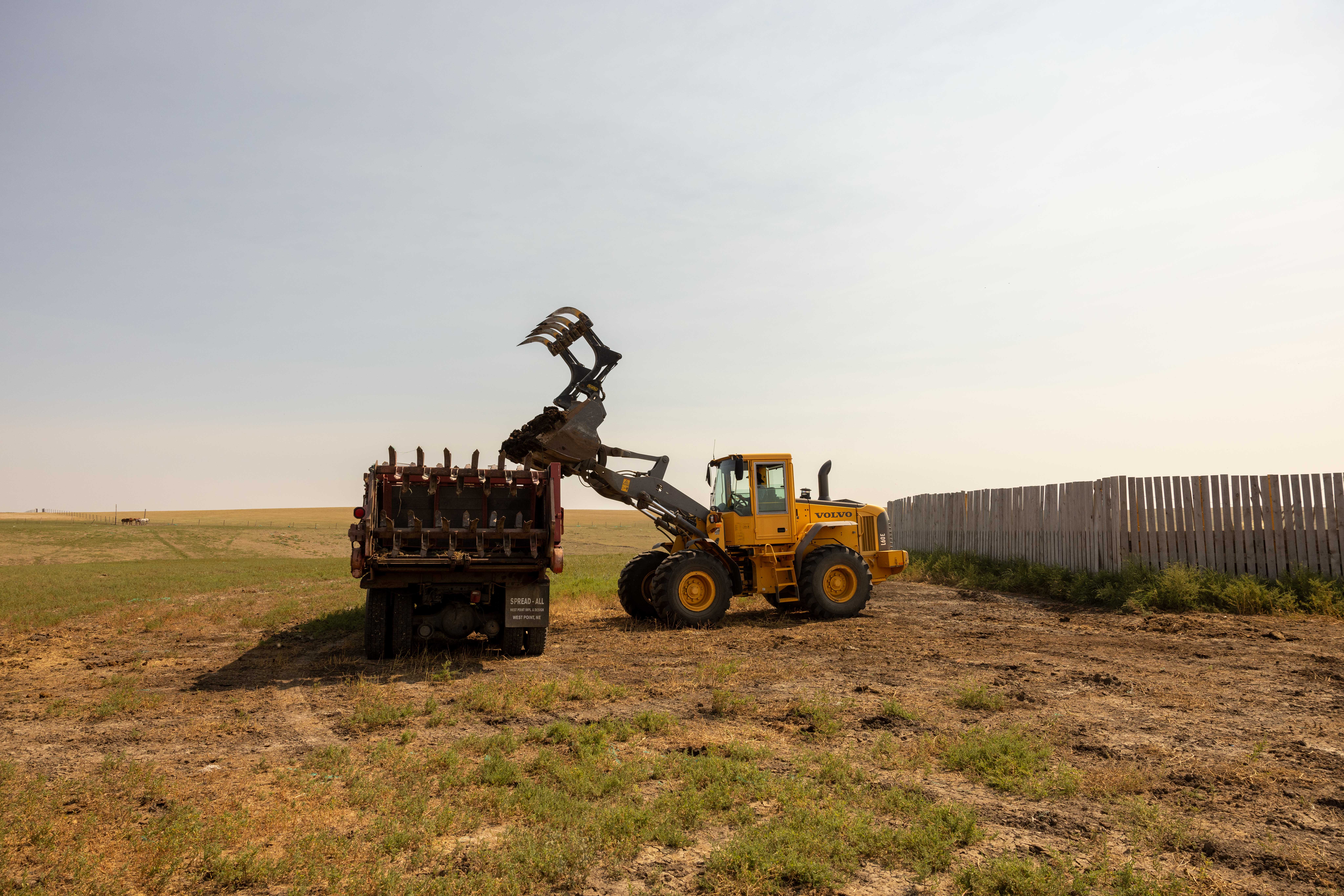
- Details
- By Levi Rickert
In a critical response to the U.S. Department of Agriculture’s (USDA) Equity Commission Final Report, the Native Farm Bill Coalition co-chairs say the report doesn’t adequately address inequities in Indian Country.
The 91-page Final Report (Report) has 66 recommendations to further advance and embed equity into policies, practices and processes at the agency. Only 11 of the 66 recommendations are specific to tribal concerns.
In a statement issued on Wednesday, Native Farm Bill Coalition’s co-chairs Kari Jo Lawrence (Three Affiliated Tribes - Fort Berthold Reservation) CEO of the Intertribal Agriculture Council and a member of the commission’s agriculture subcommittee, and Cole Miller, chairman of the Shakopee Mdewakanton Sioux Community are critical there was not enough tribal consultation in the development of the final report.
“We are concerned that the Commission’s Report doesn’t adequately address a major source of inequities in Indian Country: lack of awareness of the importance and uniqueness of Tribal sovereignty and the federal government’s treaty obligations to tribes,” the Lawrence and Miller said in their statement.
Lawrence and Miller further state that the final report “largely ignores the fact that tribal governments are sovereign, federally recognized governments, and often makes the mistake of mentioning Indigenous people as an underserved group without reference to tribes or the status of tribal trust lands that impact program accessibility. There are a number of recommendations that do not specifically mention Tribes, even though they could benefit from the provisions.”
Additionally, the two were critical in the Report's using the terms "Indigenous" and "BIPOC" when referencing tribal concerns.
“The terms BIPOC and Indigenous do not have a foundation in federal Indian law, and therefore do not have the same meaning as Tribes, which are sovereign governments with jurisdiction over Tribal lands – jurisdiction to the exclusion of states and counties that surround Tribal lands. The failure to explicitly mention Tribes minimizes an important reality in Indian Country’s relationship with the federal government and makes it easier for the USDA to continue to be dismissive of Indian Country’s concerns in the future,” Lawrence and Miller said.
Beyond their criticism, the two leaders say the Commission’s Report advances important proposals to help fulfill the Biden Administration’s commitment to make USDA’s work more equitable.
The Commission’s recommendations are specific to tribal governments and Native producers include:
- Elevating the Office of Tribal Relations
- Ensuring equitable language and culturally competent access to USDA services
- Lowering the threshold for Tribal agricultural and food businesses to access the USDA’s supplier and procurement programs
- Increasing funding for the Federally Recognized Tribal Extension Program (FRTEP) that is formula-based rather than competitive
- Expanding Cooperative Extension Service programming to marginalized communities
- Increasing financial support for 1994 Tribal Land Grant Colleges and Universities (TCUs)
- Removing eligibility restrictions on receiving Supplemental Nutrition Assistance Program (SNAP) benefits and food from the Food Distribution Program on Indian Reservations in the same month
- Prioritizing Rural Development funding and programming for rural economically distressed communities and historically underserved communities, including Federally Recognized Tribes
- Opening new forms of credit for producers by removing restriction to the intermediary relending program (IRP) that prevent IRP’s low interest loans from benefitting agricultural producers
- Ensuring representation on County Committees reflects the populations of the counties each respective committee serves
Lawrence and Miller conclude their statement they are hopefull for a new commitment from USDA leaderhip.
“Because Native people have experienced firsthand the difficulties of getting USDA senior leadership and staff to administer the agency’s programs in an equitable way toward Indian Country in the past, we look forward to seeing a new commitment from USDA leadership to implementing these recommendations and expanding access to USDA programs for Tribes, Native producers and other disadvantaged communities. It is our hope that the USDA will lean on the newly seated Tribal Advisory Committee, as well as engage in Tribal Consultations to supplement the Commission’s Report and inform the Department’s future Equity Plans pertaining to Indian Country," Lawrence and Miller said.
More Stories Like This
Native News Weekly (August 25, 2024): D.C. BriefsUS Presidents in Their Own Words Concerning American Indians
2026 Native American 40 Under 40 Class Announced
Monday Morning: (January 5, 2026): Articles You May Have Missed This Past Weekend
Native News Weekly (January 4, 2026): D.C. Briefs
Help us defend tribal sovereignty.
At Native News Online, our mission is rooted in telling the stories that strengthen sovereignty and uplift Indigenous voices — not just at year’s end, but every single day.
Because of your generosity last year, we were able to keep our reporters on the ground in tribal communities, at national gatherings and in the halls of Congress — covering the issues that matter most to Indian Country: sovereignty, culture, education, health and economic opportunity.
That support sustained us through a tough year in 2025. Now, as we look to the year ahead, we need your help right now to ensure warrior journalism remains strong — reporting that defends tribal sovereignty, amplifies Native truth, and holds power accountable.
 The stakes couldn't be higher. Your support keeps Native voices heard, Native stories told and Native sovereignty defended.
The stakes couldn't be higher. Your support keeps Native voices heard, Native stories told and Native sovereignty defended.
Stand with Warrior Journalism today.
Levi Rickert (Potawatomi), Editor & Publisher

